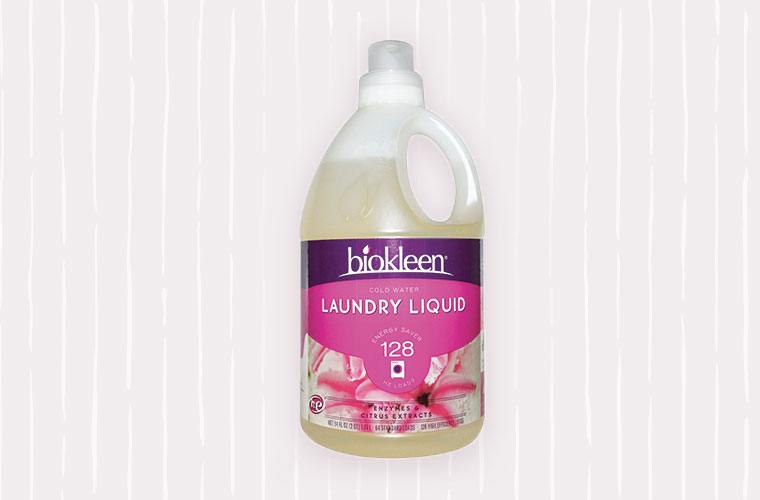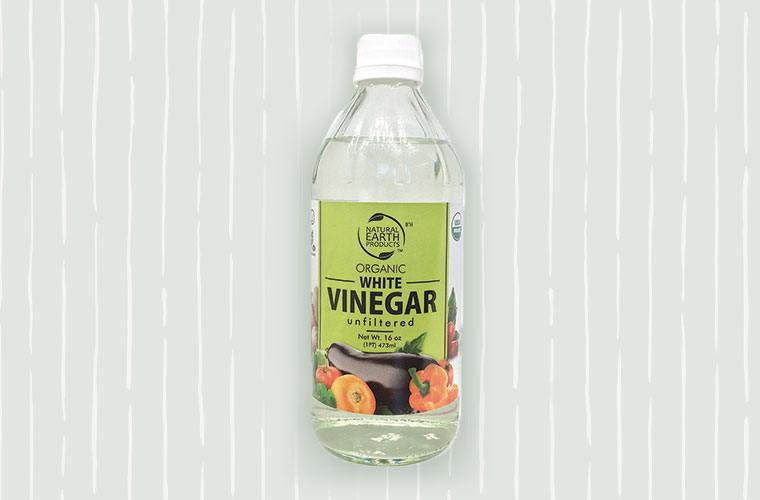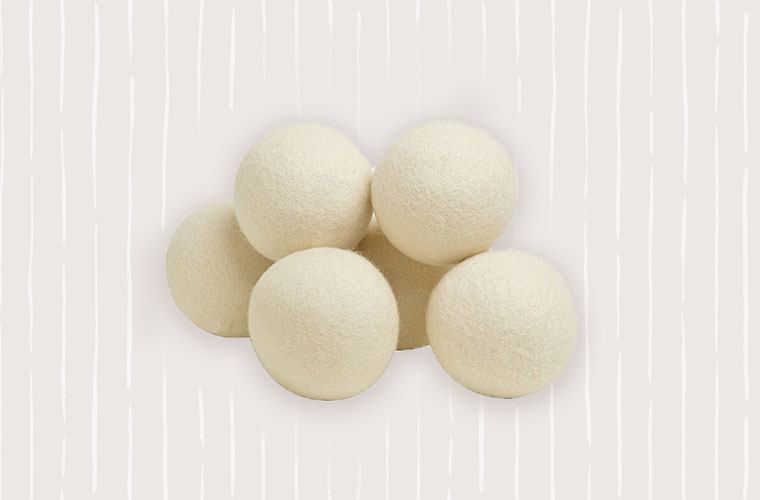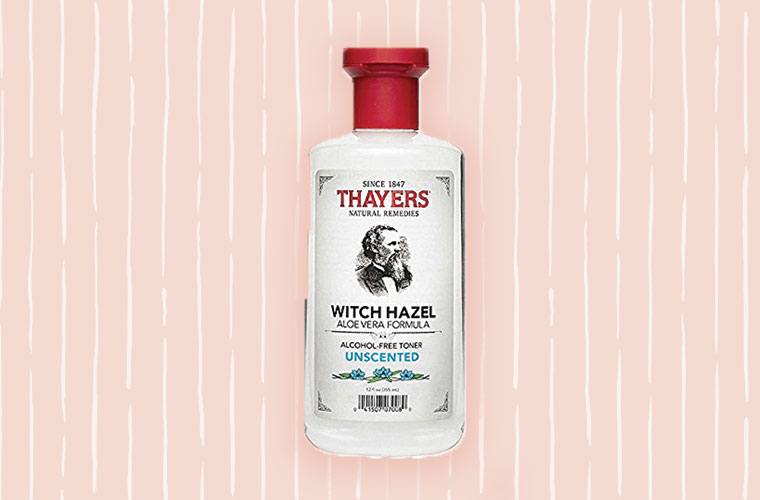6 Healthy Laundry Product Swaps to Make ASAP
In your quest for creating a healthy home, “the laundry room is one of the biggest places you could make a difference,” says Leslie Reichert, a clean-living expert and author of The Joy of Green Cleaning. “A lot of times there are so many fragrances and chemicals that we pour into our laundry, and we don't realize we're walking around with them on our skin for eight to ten hours a day."
"The laundry room is one of the biggest places you could make a difference."
The good news? There are plenty of easy swaps you can make for a healthier wash day that are easier on the planet, too. “Many of the leading manufacturers today have done a great job [of offering] products that are free of harmful phosphates, dyes, and fragrances,” says Danny Seo, a sustainable-living pro and author of Conscious Style Home: Eco-Friendly Living for the 21st Century.
That's a win for your skin and rinse cycle—and after a long day, nothing feels better than slipping between sheets that are, well, actually clean.
Here are the 6 natural alternatives to traditional laundry products healthy-home experts say to swap into your routine right now.
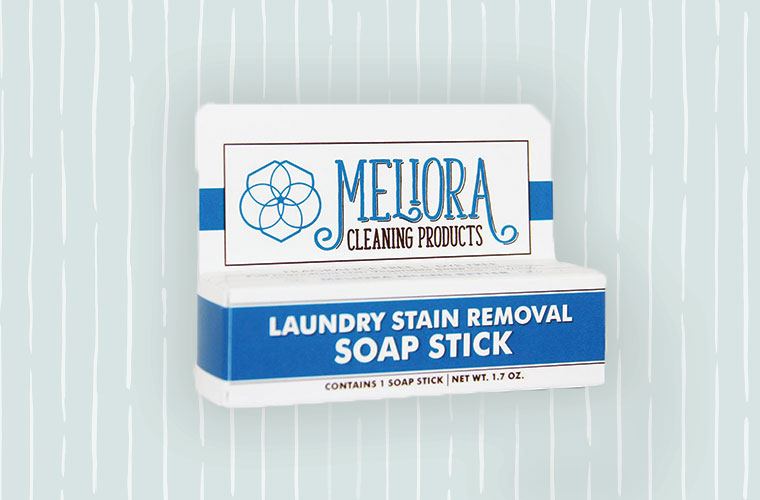
1. Stain stick
"For stain remover products, I use liquid dish soap. It's designed to break down grime and grease, so I simply pump it right onto the stain and let it do its job," offers Seo. "If you used concentrated detergent as a stain remover, it's actually too powerful for that. It breaks down the fibers and you end up with weak spots on whatever you're washing."
If you are looking for a dedicated product to do the job, Meliora Cleaning Products Laundry Stain Removal Soap Stick can handle spills and grease spots naturally—it uses coconut oil and salts formed from the fruit's fatty acids to break-up stains.
2. Detergent
The dirty truth is that conventional laundry detergent isn't all that clean. The most toxic chemicals that you definitely want to nix? Surface active agents AKA surfactants, like sodium lauryl sulfate/sodium laureth sulfate (which can cause skin, eye, and lung irritation) and nonylphenol ethoxylate (an endocrine disruptor that mimics estrogen and can affect your body's hormonal balance), and 1,4-dioxane (a likely carcinogen).

{{post.sponsorText}}
Plus, most laundry soaps also contain fragrances and perfumes, which studies have found contribute to skin irritation, exacerbate asthma, and cause headaches. And because manufacturers aren't required to list all ingredients on a product label, it's difficult for even eagle-eyed consumers to know what exactly is in their detergent.
For a natural swap, try BioKleen cold-water formula laundry liquid—and avoid using your washer's hot setting when you can. "Wash in cold water whenever possible, [as] it protects your fabrics and keeps your clothes lasting longer. It [also] uses less energy,” says Daniel Pedersen, VP of science and standard at environmental-centric consumer product certification company Green Seal.
3. Bleach
Chlorine bleach should be your last resort when you're trying to get your sheets extra white, due to the fact that it's corrosive (both to skin and the ecosystems it reaches once it runs down your drains). "It also causes more wear on fabric,” Pedersen adds. “There are gentler alternatives all around."
Reichert suggests subbing in an oxygen-based brightener like OxiClean Baby Stain Remover, which relies on hydrogen peroxide as its active stain-fighting ingredient.
4. Fabric softener
Just go ahead and ditch the fabric softener, according to Seo. “It’s an item I feel is totally unnecessary,” he says. "It adds a coating to fabric, which makes clothing feel slick and not really soft."
That's not all: The average commercial bottles contain carcinogens (like benzyl acetate and limonene) and neurotoxins (such as chloroform, and ethanol), which can induce some seriously gnarly side effects on your respiratory system. (Lung inflammation? No thanks.)
Seo suggests replacing your softener with half a cup of white vinegar, which naturally freshens and softens fabrics.
5. Dryer sheets
It's time for you to break up with your dryer sheets. Like fabric softener, they contain not-so-cool ingredients (think phthalates and fragrance chemicals, which studies have shown disrupt your endocrine system and exacerbate asthma).
Instead, make a one-time purchase of reusable wool or rubber dryer balls that'll help with static and wrinkles—they'll also reduce dryer time, which saves energy...and leaves you more money to put toward the things you love.
6. Febreze
That "fresh laundry" smell is such a popular one that the scent has inspired its own candles and perfumes. Which causes some issues if you truly want to clean up your eco-friendly wash-and-dry routine, since products with fragrances, both natural and not, emit volatile organic compounds (VCOs) that can cause everything from skin irritation to seizures, according to research. "The real thing that people don't like about natural alternatives is that they don't have a scent," Reichert explains, adding, "Clean doesn't have a smell.”
That said, if you are looking for a safe odor eliminator, she suggests mixing witch hazel with any essential oil in a spray bottle. "You can use it exactly like you do Febreze," she explains. This way, your clothes will smell as good as your newly virtuous laundry routine makes you feel.
This post was originally published on June 5, 2017; updated on September 2, 2020.
Loading More Posts...
